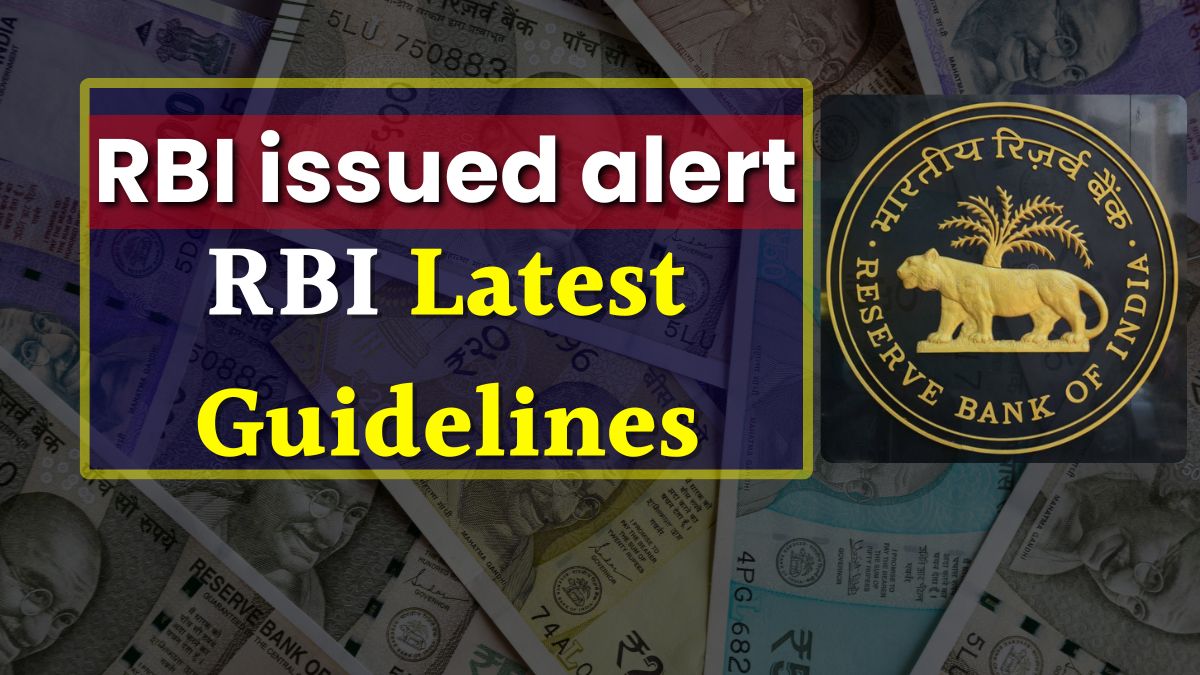Have you ever looked at a ₹50 or ₹200 note and wondered, “Is this real?” You’re not alone. With so many rumors floating around on social media, it’s easy to get confused. That’s why the Reserve Bank of India (RBI) has stepped in with a clear update.
In this guide, we’ll break down everything you need to know about the new RBI alert, how to identify real ₹50 and ₹200 notes, and what to do if you come across a fake or torn one.
Why Did RBI Issue an Alert?
Recently, RBI noticed a rise in misinformation about currency notes especially ₹50 and ₹200 denominations. Fake news, viral videos, and rumors have left many people worried.
To clear the air, RBI issued new guidelines and reminded the public to avoid believing or sharing unverified claims about currency notes.
How to Check If a ₹50 Note Is Real
Not sure if that ₹50 note in your wallet is authentic? Here’s how you can check:
Key Security Features of ₹50 Note:
| Feature | Details |
|---|---|
| Language & Number | Value written in Devanagari on the front |
| Gandhi’s Image | Mahatma Gandhi’s portrait on the front side |
| Fine Print | ‘INDIA’ and ‘50’ printed in tiny letters |
| Security Thread | ‘भारत’ and ‘RBI’ printed on a visible thread |
| Watermark | Electrotype watermark + Ashoka Pillar on the right |
| Backside Features | Year of printing, Swachh Bharat logo and slogan |
| Size | 66 mm x 135 mm |
| Number Panel | Alphanumeric, with size increasing left to right |
Tip: Hold the note against the light and look for the watermark and thread. These can’t be faked easily.
How to Identify a Real ₹200 Note
The ₹200 note looks different—and it should. It’s got a distinct color and design to help people, especially those who are visually challenged.
Key Features of ₹200 Note:
| Feature | Details |
|---|---|
| Base Color | Bright yellow |
| Backside Image | Sanchi Stupa |
| Size | 66 mm x 146 mm |
| Security Thread | Color changes from green to blue when tilted |
| Raised Printing | For the visually impaired |
| Watermark | Mahatma Gandhi + electrotype |
| Printing Year | Found on the bottom left of the note |
| Swachh Bharat Logo | Printed on the back side |
What to Do If You Have a Torn or Fake Note
Even if a note is slightly torn or damaged, it can be exchanged at any bank, as long as key elements like watermark, serial number, and security thread are visible.
RBI’s Guidelines for Torn Notes:
- Don’t panic if a note is damaged—banks are required to accept valid torn notes.
- If a note is badly mutilated, it might not be accepted unless enough of the security features are visible.
Where to Report a Fake or Suspicious Note
If you think you’ve received a fake note or want to report any currency-related issue, here’s what you can do:
- Visit RBI’s Complaint Portal: https://cms.rbi.org.in
- Contact RBI Helpline for currency and banking-related issues.
- For bank-related concerns, you can also escalate complaints to the Banking Ombudsman via the same portal.
Quick Recap – Real ₹50 & ₹200 Notes at a Glance
- ₹50 note: Mahatma Gandhi photo, Ashoka Pillar watermark, fine print, Swachh Bharat logo
- ₹200 note: Yellow color, Sanchi Stupa image, color-changing security thread, watermark
- Torn notes? Banks must exchange them if key features are visible.
- Got a complaint? Visit cms.rbi.org.in
Final Thought
RBI’s new alert is a reminder to stay alert—not anxious. Most fake note rumors are just that: rumors. With the right knowledge, you can confidently check and handle your currency.
Want to learn more or file a complaint? You can always explore the RBI’s official site.
FAQ: What People Are Asking
Q1. Are ₹50 and ₹200 notes still valid in 2025?
Yes, all officially issued ₹50 and ₹200 notes remain valid. RBI hasn’t withdrawn these notes.
Q2. What should I do if a shop refuses my ₹50 note?
If your note is genuine and in acceptable condition, they can’t legally refuse it. You can report such cases to the bank or RBI.
Q3. Can I exchange a badly torn ₹50 note?
Yes, but only if key security features are still visible. Visit any bank for assistance.
Q4. How do I spot a fake ₹200 note?
Look for color-changing thread, watermark, and raised print. Compare it with an authentic one if unsure.
Q5. Is it safe to believe viral videos on fake notes?
No. RBI has urged people to ignore unverified videos or social media messages and follow official updates.
